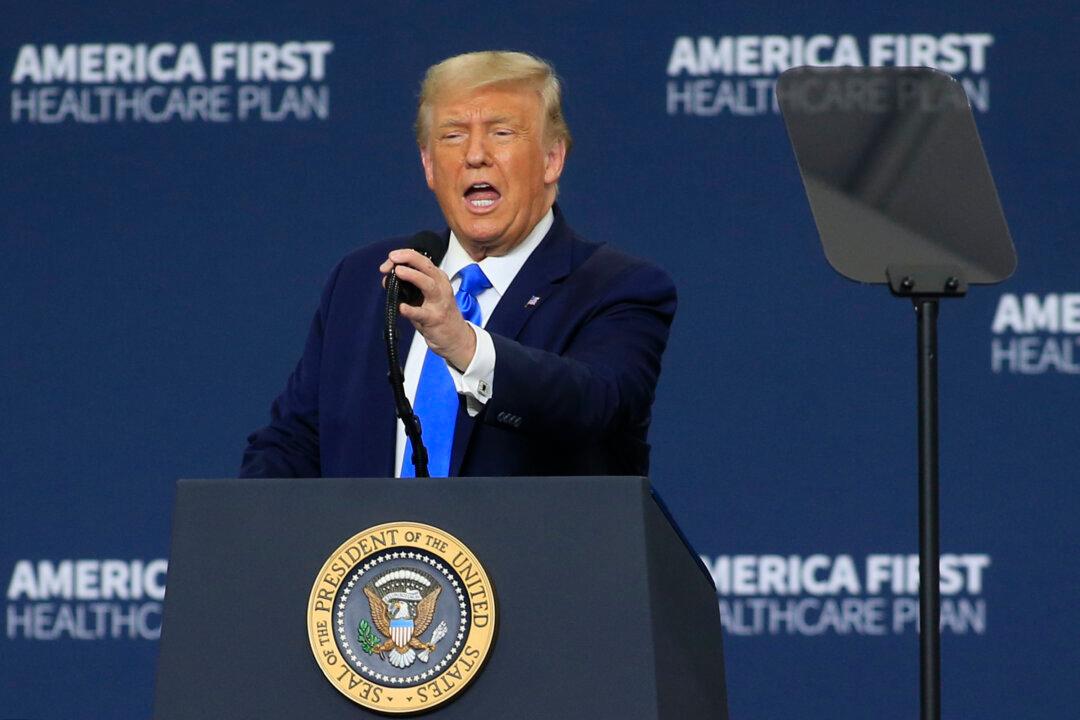President Donald Trump has promised to send $200 drug discount cards to 33 million seniors enrolled in Medicare, as part of his administration’s effort to address high prescription drug costs.
“Nobody’s seen this before, these cards are incredible,” Trump said at a speech on health care in North Carolina on Sept. 24. “The cards will be mailed out in coming weeks, I will always take care of our wonderful senior citizens.”





